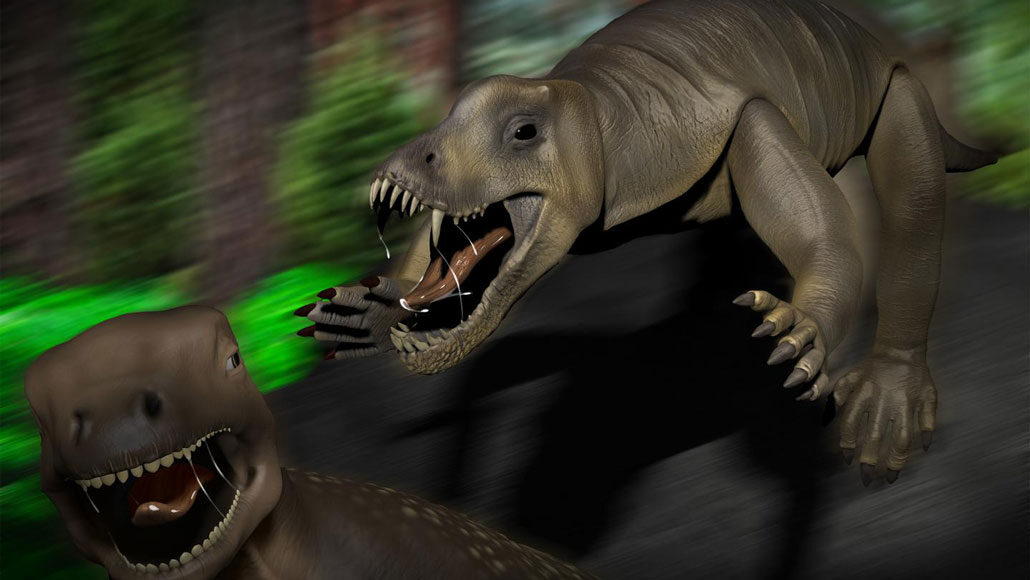Questions for “An ancient hippo-sized reptile may have been a speedy beast”

With fangs the size of bananas and capable of crushing bones, anteosaurs (one illustrated chasing a Moschognathus) reigned as top predators before the advent of dinosaurs.
Alex Bernardini